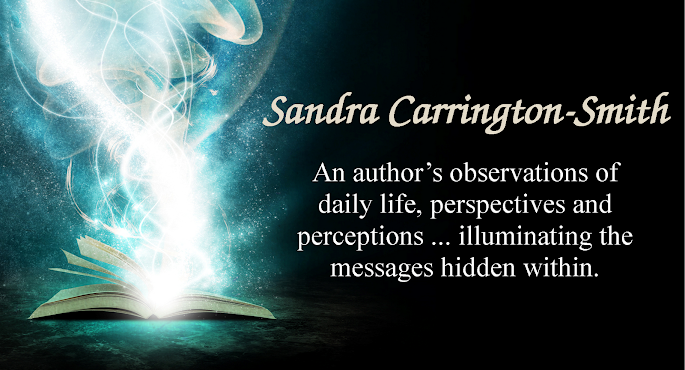
Our world is going through a hard shift. On that, I believe, everyone is likely to agree. Not only does it seem that our planet is being traumatized by increasingly frequent disasters, but also the people inhabiting it are struggling to just make it to the next day. All one has to do is open any newspaper, or listen to any random newscast – conflicts are on the rise, the economy is at its lowest since the depression of ’29, and tension is growing in many parts of the world. It is not uncommon to hear a collective sense of panic in the voices of the people, and to detect a quickly-spreading sense of doom in the very air that we breathe.
So, what’s happening to our old world? Are the prophets of doom right, and are our days counted? Has evil in our world reached such levels that it is no longer manageable? Or is it possible that we, as individual pieces of the greater puzzle, are making mountains out of mole hills?
Our world is indeed changing, but that’s not necessarily a bad thing. We tend to be extremely defensive when it comes to change, and cling to the ways of the past as the answer to dealing with fears for our future, but in reality everything must continue changing, even us. Our bodies and minds change every year, every day, every single minute we move through life, and as these changes take place, we become fearful; not necessarily because changes can bring upon anything unpleasant, but because change and the passage of time necessary for changes to take place are related to our mortality. Change is not the evil many believe it to be, but rather it is a necessary process of renewal which runs right along the path of evolution of body and spirit.
Clinging to the past is more common than many bother to acknowledge. We perceive old music as more melodious, old movies seem better directed and acted out, old ways of life appear more wholesome and void of hardship. In reality, the past was not any easier than today is. Our grandparents looked at the new generations of the forties and fifties with the same apprehension that our parents exhibited when glimpsing at the ways of their children, us. Now we are doing the same with our children, and unless we come to grips that change is a good thing, our children will do the same with their own.
So, has a world without hardship ever existed? We can fool ourselves by thinking that yesterday was filled with roses and pink unicorns, but if we open our eyes to the cold, hard facts of reality, we’ll see that our history was saturated with injustice and wars, fear and famine, suffering and illness, probably to an even greater extent than we can identify in our present days. Illness itself is not an invention of progress. In fact, people used to get sick and die much more in the past than they do today. With the advent of modern medicine, improved technology and better education, we have been able to conquer milestones once thought impossible to even be considered.
Crime seems rampant, but is it really? I can think back to a time not too long ago in our history when people could murder someone without even being held accountable for their actions. Robberies and crimes of passion or abuse have always existed. Back then, people just didn’t know about anything that happened to others and only were concerned with all that was taking place in their immediate circles. If a tsunami hit Indonesia two hundred years ago, people didn’t know about it in Europe – not because it wasn’t happening, but because the communication between different countries was not in place. So, it seems that all these changes people fear are nothing more than regular happenings just displayed for the eyes of a larger crowd. There are, however, things that are shifting, and it is up to us to prepare for their arrival.
The last two thousand years was the age of religions and patriarchal institutions. Within this time window, Jesus, Buddha and Mohammed were born, and initiated an incredible shift of consciousness on our planet with their teachings. Patriarchal structures replaced the fluid thinking of the previous ages, and they served the purpose of teaching the world self-discipline and the importance of using the benefits brought along by the conscious mind. The age is nearing its end, and in the last few decades it has become increasingly apparent that our world is once again preparing to shift toward the heart center and toward feminine energy. In our lifetimes we will witness the fall of patriarchal empires and all they have come to stand for. The economic crash of 2008 is only the first sign of what’s to come.
Our world is not dying, and no world-wide catastrophe is lurking in the shadows, but our realities are changing, and preparing for a shift of consciousness which will affect us as a whole. We could sit here and wonder what exactly will happen, but nobody really has that answer; and really, wasting our energies on forecasting good or bad will not change the impact of what’s coming on our realities. Our children are ready for the shift; the increasingly apparent new “attitude” our youth is expressing is not a symptom of their downfall but a manifestation of the new type of energy necessary to welcome the change from being mind-centered to being heart-centered.
What can we do, as individuals, to prepare for this shift of energies and not be swept away in the process of transition?
First of all, we must learn to let go of what no longer serves us. Fear tactics, guilt, and isolations are the ways of the fathers, and they will no longer work in our new world. We must learn to reconnect to one another and to see the divine into each manifestation around us. Some of this process is already taking place as people are trying to keep their heads above the water during the economic disaster which has befallen our communities. Families are coming together, friends are reconnecting and helping one another, necessities are shared, and in light of greater evils, some of our differences are being overlooked. Many wounds are also coming to the surface and are being healed below the skin of immediate awareness. Racism, superiority of one life form over another, and greed are being exposed through conflicts that have the healing power of uncovering old wounds so that they can be cleansed. Conflict itself is not an evil but a savior, because it is through conflicts that we step out of viscous waters to fight, and we detach from complacency and acceptance of unnecessary pain.
Our world is changing, just has it has for ages unrecorded. Our current times are not evil but they are in need of spring cleaning. Although apparently the scale has shifted its needle toward the illusion of negativity, the only thing that’s nearing its end is the age of the fathers. Balance is at close proximity, and the best way to be a part of it is simply to acknowledge the fact that we are not walking this path alone but we are all holding onto the same rope leading us to the top.
 This is the story of a tiny cat named Chevy. Chevy’s life began about eight weeks ago under circumstances none of us are aware of, and her arrival triggered a change of heart for Bill, my brother-in-law.
This is the story of a tiny cat named Chevy. Chevy’s life began about eight weeks ago under circumstances none of us are aware of, and her arrival triggered a change of heart for Bill, my brother-in-law.



























